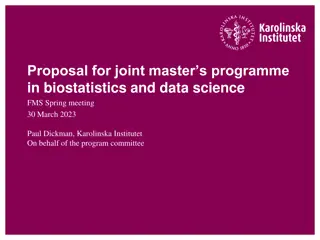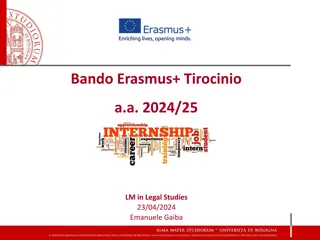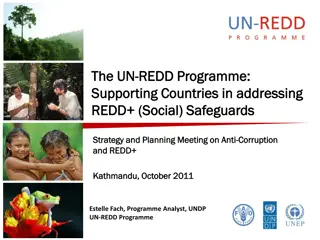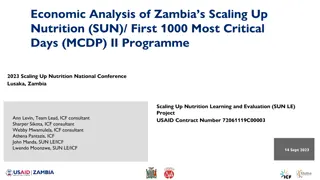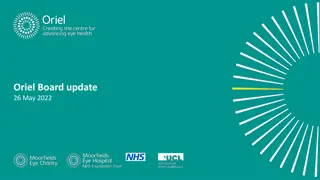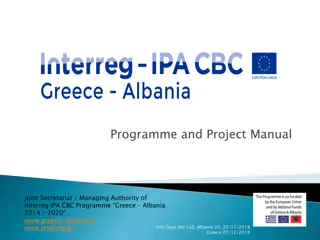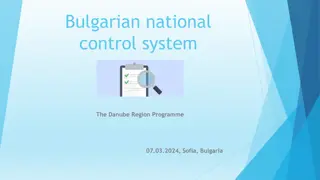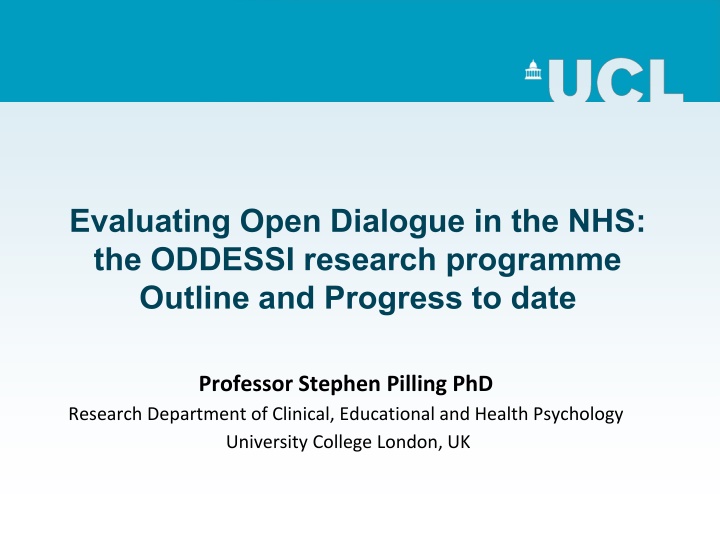
ODDESSI Research Programme: Evaluating Open Dialogue in the NHS
The ODDESSI research programme led by Professor Stephen Pilling at University College London aims to evaluate the implementation of Open Dialogue in the NHS for managing mental health crises. The comprehensive 5-year programme includes developing a protocol, assessing cost-effectiveness, understanding user experiences, and more. Five work packages are in progress, covering intervention development, feasibility studies, RCT, and evaluation of service user experiences.
Download Presentation

Please find below an Image/Link to download the presentation.
The content on the website is provided AS IS for your information and personal use only. It may not be sold, licensed, or shared on other websites without obtaining consent from the author. If you encounter any issues during the download, it is possible that the publisher has removed the file from their server.
You are allowed to download the files provided on this website for personal or commercial use, subject to the condition that they are used lawfully. All files are the property of their respective owners.
The content on the website is provided AS IS for your information and personal use only. It may not be sold, licensed, or shared on other websites without obtaining consent from the author.
E N D
Presentation Transcript
Evaluating Open Dialogue in the NHS: the ODDESSI research programme Outline and Progress to date Professor Stephen Pilling PhD Research Department of Clinical, Educational and Health Psychology University College London, UK
UK Research Programme Open Dialogue Development and Evaluation of a Social Network Intervention for Severe Mental IIlness (ODDESSI) 5 year programme, NIHR Programme Grant for Applied Research Comprehensive evaluation with 5 workpackages, including a multi-centre cluster RCT 5+ NHS Trusts across UK signed up as study sites Majority of OD staff teams, including peer support workers, will be trained in 2017/2018 Programme milestones started July 2017 review December 2018 completion October 2022
Programme aims 1. Develop a protocol acceptable to clinicians and service users for OD in the NHS for the management of mental health crises 2. Assess the clinical and cost-effectiveness of OD compared to usual care: does OD reduce time to relapse and improve quality of social network? 3. Assess the organisational changes required to support OD implementation in the NHS: can we organise services to deliver OD and develop a sustainable model? 4. Understand service user and their family and wider networks experience of OD compared to usual care
5 Workpackages (WP) Months 12 24 36 48 60 WP1: Intervention development WP2: Feasibility study WP3: Multicentre cluster RCT and economic evaluation WP4: Implementation and organisational change process evaluation WP5: Evaluation of service user, family and network experience of OD
WP1 Intervention Development 1) Refine and establish the intervention OD teams start operating across all sites and ? Develop operational protocol with core and flexible OD model functions and staffing structure, including peer support and ? Stakeholder interviews/focus groups to support NHS implementation - how does the model vary across Trusts? 2) Develop Peer Support Worker component Integral members of OD team Role: assist service user to develop and maintain social network, attend network meetings, team meetings and supervision and ?
WP2 Feasibility Trial 9 month feasibility trial of 2 OD teams and 2 TaU teams in 2 Trust sites to start March/April 2108 Can we satisfy the following stop-go criteria so we can progress to the main trial: Can we recruit 10% of trial sample? Can we retain 80% of participants at 3 month follow up? Can we collect primary outcome data from 85% at 3 months? Can we achieve the expected consent rate? Can all sites establish OD teams and the geographical clusters they serve and can all OD teams operate to protocol? Can all OD teams achieve adequate adherence and fidelity?
WP3 Multicentre cluster RCT Pragmatic two-arm cluster RCT and cost-effectiveness evaluation of OD versus usual care (routine NHS crisis care, CRTHTT, and longer-term community care) 28 clusters randomized to deliver OD or usual care (23 per cluster) n=644 recruited over 12 months, 24 month follow up Include: 18+ years, service user in crisis, within 48 hours of CRHTT referral or discharged to CRHTT, ICD MH diagnosis Primary outcome: time to relapse (case-note method) Secondary outcomes: social network quality and size, hospitalisation, recovery, satisfaction with care, QoL, carer burden of care and shared decision making
WP4 Implementation and organisational change process evaluation Stakeholder consultation staff, NHS managers, service users Assess OD team adherence and fidelity to intervention and service model across sites and ? Explore staff experience of OD training and of delivering OD and usual care and ? Develop an in-service staff OD training programme Model a catchment-wide model OD service in an NHS site following main trial
WP5 Evaluation of service user, family and network experience of OD Service user, family member and/or social network members and practitioner experience of doing OD together what works, how does it work and what s different to usual care? Comparative case study approach: interviews with OD and usual care families Topics could include experience of process and change, contextual factors affecting access and outcomes, perceived change in relationships, social engagement, empowerment
Challenges in Delivering the ODESSI Programme Recruiting 28 clusters (and 644 participants!) NELFT, KMPT, CIFT, BEH, DPT (?? Others ) Maintaining staff training throughout the programme (300 trained, 100 on new model ) Development of the peer support worker role Managing case loads and expectations in OD and TAU services Maintaining adherence/fidelity to the model throughout the programme (for OD and TAU) Keeping in contact with 644 people Surviving the changes in the NHS
Challenges in Delivering the ODESSI Programme Implementing the ODESSI Protocol Protocol based on core OD principles Essential components of OD team specified Definition of crises Definition of and referral pathways to clusters Links to crisis and in-patient care Avoiding contamination - OD leakage Variation of importance but has limits

